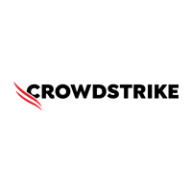

SonarQube Server and CrowdStrike Falcon Cloud Security compete in the areas of code quality management and cybersecurity, respectively. Based on the data comparisons, CrowdStrike Falcon Cloud Security seems to have the upper hand in cybersecurity due to its robust threat detection and real-time response capabilities, while SonarQube excels in enhancing code quality and supporting multiple programming languages.
Features: SonarQube Server offers a wide variety of code quality features, supporting over 20 programming languages, custom coding rules, and integration with development tools. It also includes features like unit testing and code duplication checks. CrowdStrike Falcon Cloud Security provides comprehensive threat detection, AI-driven insights, and robust cloud security features, enabling real-time response and extensive threat analytics.
Room for Improvement: SonarQube Server users have highlighted the need for improvements in configuration simplicity, reduction of false positives, and better support for security and dynamic testing. CrowdStrike Falcon Cloud Security could improve its portal navigation and user behavior analytics and offer more flexible pricing solutions for mid-sized organizations.
Ease of Deployment and Customer Service: SonarQube Server offers flexible deployment options across on-premises, private, and public cloud environments, backed by extensive documentation and a strong user community. CrowdStrike Falcon primarily runs in the public cloud, ensuring streamlined deployments, although often at a higher cost. While its technical support is generally satisfactory, there are mentions of potential improvements in response times and cost-effectiveness.
Pricing and ROI: SonarQube Server is recognized for its cost-effectiveness with a free community version and affordable enterprise packages, contributing to a high ROI through improved code quality. CrowdStrike Falcon Cloud Security, though more expensive, offers strong ROI by enhancing threat detection and response, making it a preferred choice for cybersecurity-focused organizations.
More than 12 million vulnerabilities have been identified and resolved while working with CrowdStrike Falcon Cloud Security over the past 10 years.
It is an expense we are willing to pay to conform to Cyber Essentials Plus and demonstrate responsibility in protecting our data and that of our partners.
I have seen a return on the investment from SonarQube Server (formerly SonarQube) because the value it adds relates to static code analysis and vulnerability assessments needed for our FDA approval process.
We see productivity increasing based on the fact that the code review is mostly automated, allowing the developer to fix the code themselves before assigning it to someone else to review, thus receiving that ROI.
It's more about maintaining standards and being able to prevent issues before they occur.
Based on my experience with CrowdStrike Falcon Cloud Security's technical support, I would rate them a solid 10 out of 10.
Technical support is quite good.
I have contacted customer service, and they are fast.
The community support is quite effective.
I would rate the technical support for SonarQube Server (formerly SonarQube) as a 10 because we have not faced any specific issues that required us to contact tech support, which is a very rare case.
They showed us where we can actually get those granular level reporting extracted for Excel, which was a quick guide.
It is deployed across multiple departments and multiple locations.
CrowdStrike Falcon Cloud Security is indeed highly scalable, ideally for enterprises with a minimum of 2,000 servers to ensure cost efficiency and easier setup.
I would rate the scalability of SonarQube Server as a 10 because we can configure the server to scan multiple projects based on the number of lines.
I find SonarQube Server (formerly SonarQube) very scalable because we're able to create a new repository and integrate all the tools on that project and it just works.
Occasionally, when the workload increases, it slows down considerably and sometimes becomes unresponsive.
When evaluating the stability of CrowdStrike Falcon Cloud Security, their partnerships with all major cloud service providers ensure their servers are optimally positioned.
I think SonarQube Server (formerly SonarQube) is stable, and we did not face any problems unless there was a power outage or if the LAN cable was plugged out.
If CrowdStrike Falcon Cloud Security could implement pushing out remediation from the sensor installed on machines, that would be beneficial.
The user interface needs improvement as it's sometimes difficult to locate specific dashboards or reports.
Another issue is the lack of proper documentation.
If I fix some vulnerabilities today, they reappear in the next scan, and there will be completely different issues that need to be fixed.
As soon as I see that they've got a new feature that integrates AI that is not as generative as other GenAI platforms that actually generate the code and help developers develop faster, I believe that capability is lacking.
Instead of grouping, I would prefer to scan the code as part of development and then generate a report on a daily basis among different units or projects, which is currently complicated.
The pricing for CrowdStrike Falcon Cloud Security is reasonable, especially for small companies with limited budgets.
No additional cost for maintenance or support; it's all included in the quotation.
However, the main point is that even though it is expensive, it provides a huge capability to the organization.
I would rate the pricing for SonarQube Server (formerly SonarQube) as an 8, where 1 is very cheap and 10 is very expensive, because Coverity is very expensive, and while SonarQube is not cheap, it is still less expensive than Coverity.
They always offer around a two-year contract, but we always take a one-year contract because it's expensive.
The freemium version of SonarQube Server offers excellent value, especially compared to the high costs of Snyk.
It automatically blocks duplication and activities that could result in data loss, effectively preventing unintended copying of data to personal devices.
The threat detection capability of CrowdStrike Falcon Cloud Security has always been the major seller, and it works effectively.
The most effective feature is the machine learning aspect, which detects unauthorized scripts and potential data exfiltration.
Some of the static code analysis capabilities are the most beneficial.
The most valuable features of SonarQube Server (formerly SonarQube) for us include having control of the rules, enabling and disabling them.
We use SonarQube Server's centralized management and visualization of code quality metrics on the dashboard because that's the executive dashboard that we send to the executives to show where we are in terms of quality, security, and where the company can improve.
| Product | Market Share (%) |
|---|---|
| SonarQube Server (formerly SonarQube) | 20.4% |
| CrowdStrike Falcon Cloud Security | 1.0% |
| Other | 78.6% |


| Company Size | Count |
|---|---|
| Small Business | 13 |
| Midsize Enterprise | 6 |
| Large Enterprise | 12 |
| Company Size | Count |
|---|---|
| Small Business | 32 |
| Midsize Enterprise | 21 |
| Large Enterprise | 75 |
CrowdStrike Falcon Cloud Security is a platform of cloud security solutions aimed at protecting organizations from breaches while simplifying cloud security management. The unified platform combines several cloud security functionalities for comprehensive protection. Built on the CrowdStrike Falcon Platform, it leverages the powerful agent and technology used in CrowdStrike's renowned endpoint protection solutions, extending its capabilities seamlessly to cloud environments.
CrowdStrike Falcon Cloud Security is designed to be a shield for the cloud infrastructure. One of its key strengths is its ability to monitor cloud workloads for potential breaches and attacks. It doesn't matter if you're running virtual machines, containers, or a combination of both across different cloud providers – Falcon Cloud Security offers visibility and protection. Additionally, it works tirelessly to pinpoint misconfigurations or vulnerabilities in your cloud setup, proactively stopping issues before they become full-blown security incidents. Compliance becomes easier too, as it can check if your deployments meet the requirements of various industry standards and regulations.
If you heavily utilize containers and Kubernetes, Falcon Cloud Security has you covered. It delves deep into container images and running containers to spot weaknesses and potential threats, helping you secure your containerized applications from the moment they're developed to when they're up and running. Finally, it tackles the often messy world of permissions in the cloud. Falcon Cloud Security analyzes identities and their attached permissions, ensuring that the principle of least privilege is followed and sensitive data isn't exposed due to overly broad access rights.
In essence, CrowdStrike Falcon Cloud Security aims to simplify the complexities of cloud security by consolidating tools, providing a centralized view of your risks and threats, and delivering advanced protection that blends seamlessly with your development processes.
Based on the interviews we conducted with CrowdStrike Falcon Cloud Security users, overall, the sentiment is positive. Users praise the solution's efficacy in detecting and preventing threats, its ease of use, scalability, stability, and integration with existing systems. There were also mentions of areas for improvement, such as the pricing, the user interface, and customer support.
SonarQube Server enhances code quality and security via static code analysis. It detects vulnerabilities, improves standards, and reduces technical debt, integrating into CI/CD pipelines.
SonarQube Server is a comprehensive tool for enhancing code quality and security. It offers static code analysis to identify vulnerabilities, improve coding standards, and reduce technical debt. By integrating into CI/CD pipelines, it provides automated checks for adherence to best practices. Organizations use it for code inspection, security testing, and compliance, ensuring development environments with better maintainability and fewer issues.
What are the key features of SonarQube Server?Many industries implement SonarQube Server to uphold coding standards, maintain security protocols, and streamline their software development lifecycle. In sectors like finance and healthcare, adhering to regulations and ensuring reliable software is critical, making SonarQube Server invaluable. It is often integrated into CI/CD pipelines, ensuring that code changes meet set standards before deployment. This approach enhances productivity and maintains compliance with industry-specific requirements.
We monitor all Application Security Tools reviews to prevent fraudulent reviews and keep review quality high. We do not post reviews by company employees or direct competitors. We validate each review for authenticity via cross-reference with LinkedIn, and personal follow-up with the reviewer when necessary.